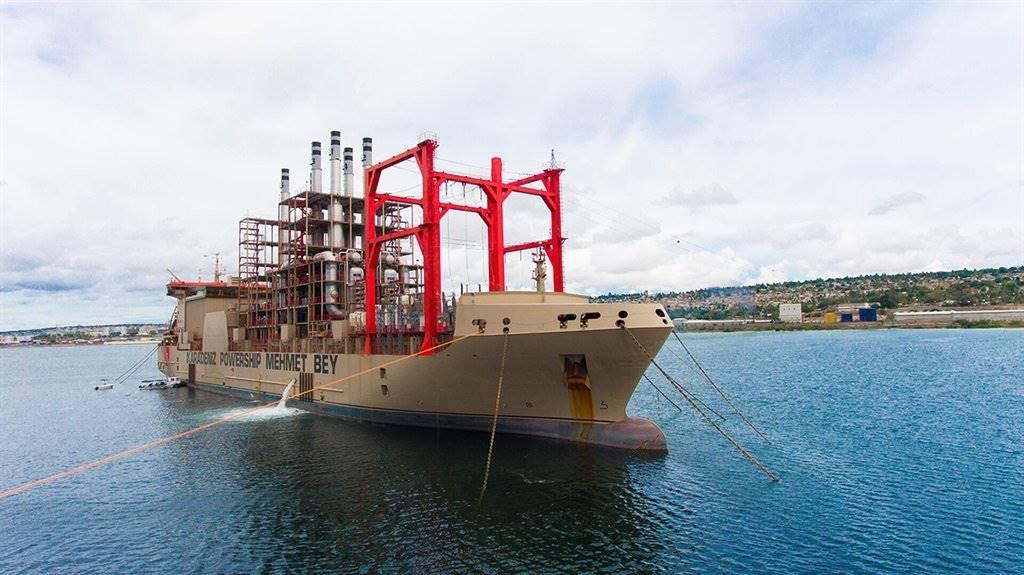Africa-Press – South-Africa. Civil advocacy group The Organisation Undoing Tax Abuse (OUTA) is taking the country’s energy regulator to court for failing to look after the interests of the SA economy by granting generating licences to Karpowership.
OUTA filed papers in the North Gauteng High Court in Pretoria asking that the decision by the National Energy Regulator of SA (Nersa) to grant those generation licences be taken on review and set aside.
“We believe Nersa did not act in the interest of South Africa. Nersa displayed a cavalier attitude without ensuring the interests of electricity suppliers are balanced with that of the public and the SA economy,” the civil advocacy group’s head of legal affairs Stefanie Fick said in a briefing on Thursday.
“We believe Nersa’s decision was unreasonable, procedurally unfair, lacked transparency, and taken without the relevant consideration,” said Fick.
OUTA said it believed Nersa did not provide the public with the necessary information on which it could comment during the process of granting the licences. It claimed many of the objections had not been addressed.
Non-profit organisation, The Green Connection, on Monday lodged a separate application with the Gauteng High Court in Pretoria, similarly seeking that Nersa’s decision to grant electricity licences to Karpowership SA companies be reviewed and set aside.
The Green Connection raised concerns that Nersa granted the licences, despite the DFFE having refused to grant Karpowership SA environmental authorisation. The group is concerned about the negative impact the gas-fired power plants will have on climate change, the environment and the economy.
“… We believe that the granting of the licenses is not in the interest of the people, electricity users or small-scale fishing communities whose livelihoods could be adversely affected by the negative environmental impacts of the Karpowerships,” said the Green Connection’s community outreach coordinator Neville van Rooy.
Karpowership South Africa was named one of the preferred bidders of an emergency power plan called the Risk Mitigation Independent Power Producer Procurement Programme (RMIPPPP). It was was awarded the bulk of the 2 000 MW of capacity to be procured. The proposed project would have also been one of Karpowership’s biggest projects – at 1 220 MW.
The plan is to anchor the vessels – which are floating power plants – in the Coega, Saldanha Bay and Richards Bay harbours on a 20-year contract. Karpowership converts gas to electricity.
A losing bidder, DNG Energy, claimed that the procurement process was corrupt and previously lodged a legal challenge. Both Karpowership SA and the Independent Power Producer Procurement Office had denied any corruption, and a high court dismissed the application. But recently, Bloomberg reported that DNG is allowed to appeal.
Karpowership was also denied environmental authorisation by the Department of Forestry, Fisheries and the Environment, which it has appealed.
Analysis by the Council for Scientific and Industrial Research indicated that if South Africa were to sign a 20-year power purchase agreement with Karpowership SA, it would cost the country between R160 billion and R218 billion.
OUTA’s energy advisor Chris Yelland said during Thursday’s briefing that independent research points to a risk in terms of increased gas prices that could put the Karpowership generation at about R5.00 per kilowatt-hour (kWh) compared to the bid prices of approximately R1.50 per kWh by the three Karpowership IPPs at the bid closing date.
OUTA also claims research indicates faster and cheaper generation options can be used instead of Karpowership to eliminate load shedding in the short term.
OUTA argues that Nersa did not take into account that Karpowership failed to meet certain requirements including a failure to get port authorisation, water licences, and waste management licences.
“We believe Nersa did not apply its mind to the circumstances. Karpowership is supposed to be only a temporary solution, so we believe signing a 20-year contract is unreasonable and maybe even unlawful, costing the country a lot of money,” said Fick.
Asked whether OUTA sees any malice on the side of Nersa, Fick said it would be dangerous to make such claims without proof. At the same time, OUTA does raise questions about whether there could have been corruption in the process, especially against the backdrop of the trust deficit created in the light of past state capture in the country.
For More News And Analysis About South-Africa Follow Africa-Press






